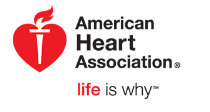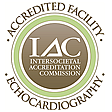Are You At Risk For PAD?
Peripheral Artery Disease (PAD) is when the peripheral arteries to the legs and other extremities narrow. Fats and cholesterol build up in the veins causing plaque deposits. This blockage is called atherosclerosis and is the primary cause of PAD. Insufficient levels of oxygen reach those areas because PAD allows less blood to travel through.
SYMPTOMS
Symptoms include pain, cramping or tiredness in the legs when walking or climbing stairs. The pain often goes away when movement stops and the demand for blood to the muscles decreases. Wounds on the feet or legs heal slowly and the legs have a lower temperature than the rest of the body. Men, particularly those that are diabetic, may experience erectile dysfunction. More dangerously, tissue death leading to gangrene is possible.
RISKS
PAD puts an individual at a higher risk for coronary artery and cardiovascular disease, heart attack, and stroke. Ulcers, sores, and gangrene can lead to amputation.
THOSE AT HIGHER RISK
Smokers and diabetics are at higher risk for developing PAD. High blood pressure and high cholesterol add to cumulative artery blockage and put people at higher risk. Age and family history are also factors.
It is dangerous to assume the common symptoms of PAD are due to other issues. There is also a chance PAD will exist without showing signs of symptoms. Therefore, it is vital to see the doctors at Carolina Heart and Leg Center, PA for correct diagnosis and treatment.
At Carolina Heart and Leg Center, P.A., we are known for our dedication to providing the highest quality cardiovascular care. We’re also committed to helping you take better care of yourself through preventive care and education about healthy lifestyle choices. Contact us today at (910) 491-1760 to schedule a consultation with one of the most trusted healthcare teams in the area.

*Stock photographs and artwork are for illustrative purposes only. **This blog/post contains general information about medical conditions and treatments. The information is not advice, and should not be treated as such. You must not rely on this blog/post as an alternative to medical advice from your doctor or other healthcare provider. Please see our full disclaimer at www.CarolinaHeartAndLeg.com





